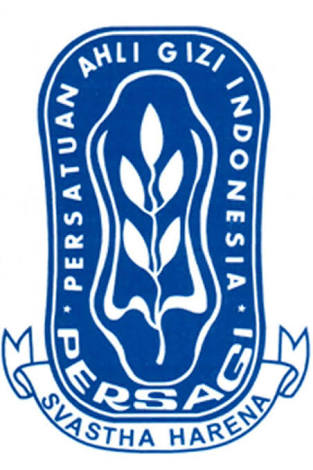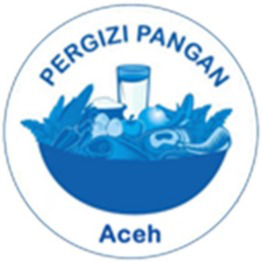Fatty Acid Profile of Snakehead (Channa striata) and Its By-Product by GC-MS
Abstract
The increasing demand for sustainable and high-quality food sources has led to a growing interest in exploring alternative protein options. Fish-derived products, known for their nutritional value, unique flavor profiles, and potential health benefits, have gained significant attention. Among these, snakehead (Channa striata) and its by-products have emerged as promising resources for various food applications, including fish powder production. Fish powder holds immense potential in the food industry as a versatile ingredient, capable of enhancing nutritional content while minimizing waste. This research focuses on investigating the fatty acid composition and volatile compounds present in snakehead fish powder and its by-products. The study employs a combination of analytical techniques, namely gas chromatography-mass spectrometry (GC-MS) and lipid extraction methods, to identify and quantify fatty acids and volatile compounds in the fish powder samples, providing a comprehensive chemical profile. The data reveals variations in the fatty acid composition among different components of the snakehead powder samples, influenced by the fish's feeding habits. The presence of essential fatty acids, including omega-3 and omega-6, highlights the potential health benefits of consuming snakehead powder. Moreover, the identification of odd chain saturated fatty acids (OCS-FAs) in the samples indicates their potential contribution to human health. Notably, snakehead powder contains docosahexaenoic acid (DHA) and eicosapentaenoic acid (EPA), which have reported preventive effects on human coronary artery disease. In conclusion, snakehead powder is a valuable source of protein and essential fatty acids, with potential implications for human health. The study emphasizes the significance of incorporating polyunsaturated fatty acids (PUFAs) into the human diet, potentially through fish powder consumption. Overall, the findings highlight the potential benefits of snakehead meat, head, skin, and bone, encouraging the development of functional food products and their potential use in preventing stunting.
Full Text:
PDFReferences
Abbey, L., Glover-Amengor, M., Atikpo, M. O., Atter, A., & Toppe, J. (2017). Nutrient content of fish powder from low value fish and fish byproducts. Food Science and Nutrition, 5(3), 374–379. https://doi.org/10.1002/fsn3.402
Ahmad, N., Hussain, A., Khan, S., Korma, S. A., Hussain, G., Aadil, R. M., … Siddeeg, A. (2021). Impact of thermal extrusion and microwave vacuum drying on fatty acids profile during fish powder preparation. Food Science and Nutrition, 9(5), 2743–2753. https://doi.org/10.1002/fsn3.2236
Ampong, I., John Ikwuobe, O., Brown, J. E. P., Bailey, C. J., Gao, D., Gutierrez-Merino, J., & Griffiths, H. R. (2022). Odd chain fatty acid metabolism in mice after a high fat diet. International Journal of Biochemistry and Cell Biology, 143(November 2021), 106135. https://doi.org/10.1016/j.biocel.2021.106135
Caprino, F., Moretti, V. M., Bellagamba, F., Turchini, G. M., Busetto, M. L., Giani, I., … Pazzaglia, M. (2008). Fatty acid composition and volatile compounds of caviar from farmed white sturgeon (Acipenser transmontanus). Analytica Chimica Acta, 617(1–2), 139–147. https://doi.org/10.1016/j.aca.2008.02.005
Esperón-Rojas, A. A., Mendoza-Sánchez, L. G., & García, H. S. (2021). Structured acylglycerides emulsifiers with bioactive fatty acids as food ingredients. Value-Addition in Food Products and Processing Through Enzyme Technology, 221–233. https://doi.org/10.1016/B978-0-323-89929-1.00004-4
Fu, X., Xu, S., & Wang, Z. (2009). Kinetics of lipid oxidation and off-odor formation in silver carp mince: The effect of lipoxygenase and hemoglobin. Food Research International, 42(1), 85–90. https://doi.org/10.1016/j.foodres.2008.09.004
Hui-hon, L. (2013, August 8). Formation of fishy odor in tilapia muscle and smell change during iced storage. Retrieved from https://www.semanticscholar.org/paper/Formation-of-fishy-odor-in-tilapia-muscle-and-smell-Hui-hon/71841ff689ea33a9e958091af1e4f9c7437e533f
Jenkins, B., West, J. A., & Koulman, A. (2015). A review of odd-chain fatty acid metabolism and the role of pentadecanoic acid (C15:0) and heptadecanoic acid (C17:0) in health and disease. Molecules, 20(2), 2425–2444. https://doi.org/10.3390/molecules20022425
Kandyliari, A., Mallouchos, A., Papandroulakis, N., Golla, J. P., Lam, T. K. T., Sakellari, A., … Kapsokefalou, M. (2020). Nutrient composition and fatty acid and protein profiles of selected fish by-products. Foods, 9(2), 1–14. https://doi.org/10.3390/foods9020190
Lee, M. C., Jiang, X., Brenna, J. T., & Abbaspourrad, A. (2018). Oleogel-structured composite for the stabilization of ω3 fatty acids in fish oil. Food & Function, 9(11), 5598–5606. https://doi.org/10.1039/c8fo01446a
Marimuthu, K., Thilaga, M., Kathiresan, S., Xavier, R., & Mas, R. H. M. H. (2012). Effect of different cooking methods on proximate and mineral composition of striped snakehead fish (Channa striatus, Bloch). Journal of Food Science and Technology, 49(3), 373–377. https://doi.org/10.1007/s13197-011-0418-9
Mohanty, B. P., Ganguly, S., Mahanty, A., Sankar, T. V., Anandan, R., Chakraborty, K., … Sridhar, N. (2016). DHA and EPA content and fatty acid profile of 39 food fishes from India. BioMed Research International, 2016. https://doi.org/10.1155/2016/4027437
Molla, M. R., A. K. M. Asaduzzaman, Mia, M. A. R., Uddin, M., Biswas, S., & Uddin, M. S. (2016). Nutritional Status, Characterization and Fatty Acid Composition of Oil and Lecithin Isolated from Fresh Water Fish Shoul (Channa striata). International Journal of Nutrition and Food Sciences, 5(1), 9. https://doi.org/10.11648/j.ijnfs.20160501.12
Mustafa, A., Widodo, M., & Kristianto, Y. (2012). Albumin and zinc content of snakehead fish (Channa striata) extract and its role in health. IEESE International Journal of Science and Technology, 1(1), 1–8.
Pal, J., Shukla, B., Maurya, A. K., Verma, H. O., Pandey, G., & Amitha. (2018). A review on role of fish in human nutrition with special emphasis to essential fatty acid. International Journal of Fisheries and Aquatic Studies, 6(2), 427–430. Retrieved from https://www.delamaris.si/healthy-diet/that-
Rahayu, P., Marcelline, F., Sulistyaningrum, E., Suhartono, M. T., & Tjandrawinata, R. R. (2016). Potential effect of striatin (DLBS0333), a bioactive protein fraction isolated from Channa striata for wound treatment. Asian Pacific Journal of Tropical Biomedicine, 6(12), 1001–1007. https://doi.org/10.1016/J.APJTB.2016.10.008
Rosmawati, Abustam, E., Tawali, A. B., Said, M. I., & Sari, D. K. (2018). Effect of body weight on the chemical composition and collagen content of snakehead fish Channa striata skin. Fisheries Science, 84(6), 1081–1089. https://doi.org/10.1007/s12562-018-1248-8
Sprague, M., Dick, J. R., & Tocher, D. R. (2016). Impact of sustainable feeds on omega-3 long-chain fatty acid levels in farmed Atlantic salmon, 2006-2015. Scientific Reports, 6(February), 1–9. https://doi.org/10.1038/srep21892
Tallima, H., & El Ridi, R. (2018). Arachidonic acid: Physiological roles and potential health benefits – A review. Journal of Advanced Research, 11, 33–41. https://doi.org/10.1016/J.JARE.2017.11.004
Tenyang, N., Ponka, R., Tiencheu, B., Djikeng, F. T., & Womeni, H. M. (2020). Effect of Traditional Drying Methods on Proximate Composition, Fatty Acid Profile, and Oil Oxidation of Fish Species Consumed in the Far‐North of Cameroon. Global Challenges, 4(8), 2000007. https://doi.org/10.1002/gch2.202000007
Wen, Y.-Q., Xue, C.-H., Zhang, H.-W., Xu, L.-L., Wang, X.-H., Bi, S.-J., … Jiang, X.-M. (2023). Concomitant oxidation of fatty acids other than DHA and EPA plays a role in the characteristic off-odor of fish oil. Food Chemistry, 404(Pt B), 134724. https://doi.org/10.1016/j.foodchem.2022.134724
DOI: https://doi.org/10.35308/jns.v4i2.8103
Refbacks
- There are currently no refbacks.
Managed by Department of Nutrition, Faculty of Public Health
Published by Universitas Teuku Umar ,
Website: http://jurnal.utu.ac.id/JNS/index
Email: jns@utu.ac.id
Phone/Fax: +62-852-7736-5563; E-mail:
This work is licensed under a Creative Commons Attribution-ShareAlike 4.0 International License.














